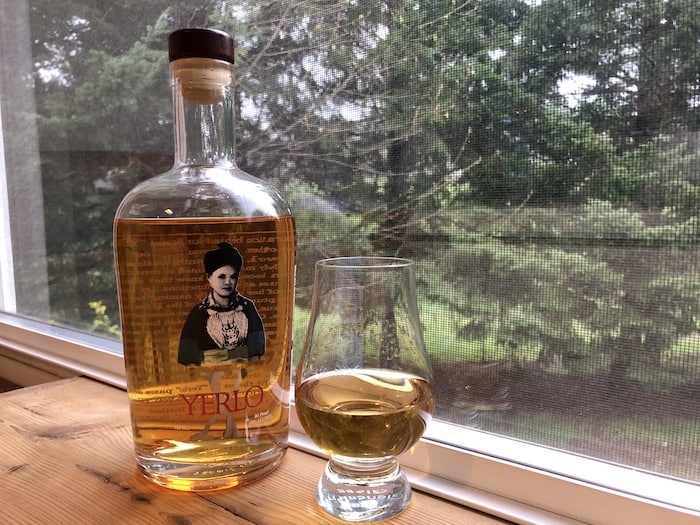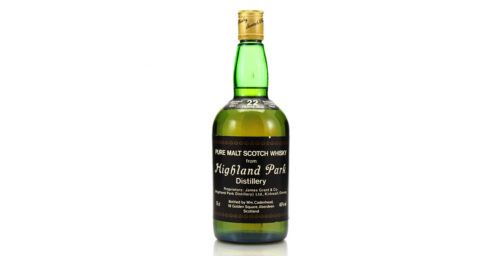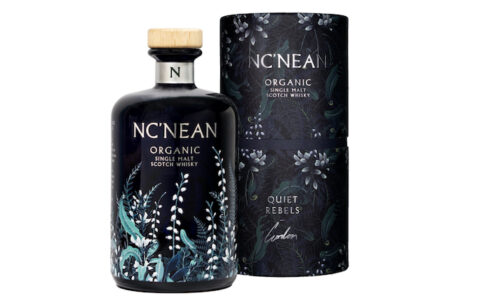I’m going to come out and admit that I’ll probably always have a soft spot for whiskey that comes from my native state, Wisconsin, but that bias aside, I can’t help but admire how a whiskey can reshape my view of my former home.
Such is the case for Yerlo X Rice Whiskey, one of the upper-tier distillates produced by Lo Artisan Distillery in the small, 1,100-person Town of Brussels, about 30 miles up the Door Peninsula from Green Bay.
Founder Lo Po established the distillery to make a business out of a rice-distilling tradition he picked up from his mother – Yerlo, after whom the brand is named – as well as a way to honor a long tradition of his Hmong community to imbibe rice liquor during celebrations, according to Door County Pulse.
Not to go too deep into history, but Hmong-Americans haven’t exactly had an easy go of it in the last 50 years. Ancestrally based in Southeast Asia, the Hmong sided with the United States in the Vietnam War and suffered devastating casualties and persecution for that choice, according to the Minnesota Historical Society.
Religious organizations took action in the years after the war in an unusual campaign that pulled tens of thousands of Hmong refugees out of Thai camps and into small American towns – the largest populations in California, Minnesota, and Wisconsin. There they faced and continue to face a different kind of prejudice, as this 2016 article in The Atlantic details, and even I can attest to some of this, having close relatives who continue to deliberately mispronounce “Hmong.”
Given that adversity and Po’s description to The Alchemist Cabinet of the tradition Hmong distillates play in their culture, I was sad to find that Lo Artisan Distillery had already shut down years before I had even heard of it.
This is my inference based on the lack of a website and a short notice in Door County Pulse in late 2016 that Door County had won a judgment of about $33,000 from Po for the unpaid balance on a $60,000 economic-development loan he got in 2009 for distilling equipment, which is corroborated by Wisconsin court records.
Despite few official sources remaining, Po described the distilling process in a detailed Q&A with The Alchemist Cabinet in 2017, explaining that Yerlo X (as opposed to the basic Yerlo rice spirit) goes through an 8-month fermentation process before aging for four months in oak barrels, and then being bottled at 90 proof.
Po reported at the time that bottles were flying off the shelves, but years later most websites show this whiskey as long out of stock, so good luck finding a bottle.

Tasting Notes: Yerlo X Rice Whiskey
Vital stats: Hmong-style rice whiskey with a 13-month production cycle – an 8-month fermentation process followed by four months of aging in oak barrels, then bottled at 45% ABV. A bottle goes for at least $150, but chances of finding one in a liquor store, even in Wisconsin, are slim at this point.
Appearance: Whether in a bottle or in a glass, Yerlo Whiskey is a bright golden amber, much brighter than the average American whiskey but still within a normal range.
Nose: The first sniff has an earthy, smoky vanilla at its core with green apple giving a slightly tart edge and with distant oak, ginger, and floral notes. That mellows into a richer molasses with stronger notes of oak, raisins, and nutmeg.
Palate: Entry brings a sweet, mellow vanilla onto the tongue that’s much more delicate than the typical American whiskey while still managing to have faint notes of pear and flowers. That develops into a restrained mix of ginger, allspice and charred oak that give the sweeter core more of a caramel flavor. That never gets beyond a gentle hum on the tongue. Swallowing brings a firmer but gentle wave of spicy ginger across the tongue which fades into a gentle tingle as it makes way for a smoky molasses to make it’s way back onto the tongue.







